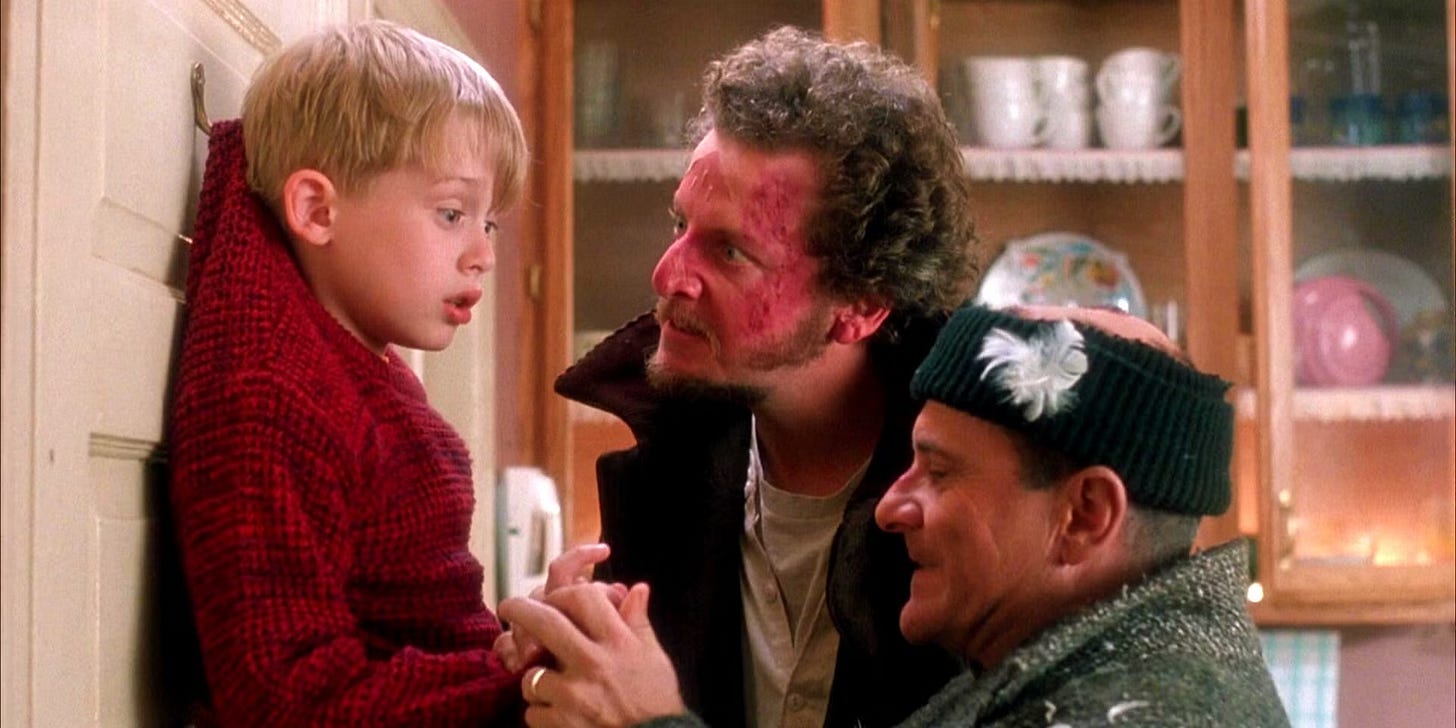On the surface, Home Alone (1990) is a slapstick comedy, a holiday classic about an eight-year-old boy named Kevin McCallister who is accidentally left behind by his family during the Christmas season. The image of young Kevin outsmarting two bumbling burglars with ingenious traps has become iconic. Yet beneath the laughs and festive chaos lies a surprisingly poignant exploration of loneliness — and how it shapes us.
Kevin’s initial solitude is an inadvertent wish granted. Frustrated by family chaos, he declares, “I wish I didn’t have a family.” When he wakes up the next morning to an empty house, there’s a sense of liberating joy. He can eat junk food, jump on his parents’ bed, and live without rules. But this freedom soon reveals a more profound and universal feeling: the ache of being alone.
Kevin’s loneliness is more than physical absence; it’s the emotional sting of feeling overlooked and misunderstood. For children, loneliness can be especially raw — the sense that your voice isn’t heard, that you don’t matter. Though Kevin fashions a brave, independent front, his moments of vulnerability shine through. He watches happy families through frosted windows, speaks to mannequins for comfort, and lingers near a Santa impersonator, wishing for his family’s return. These quiet scenes remind us that connection, even in its imperfect and messy form, is vital.
The movie also subtly highlights the loneliness felt by adults. Take Old Man Marley, the reclusive neighbor who’s rumored to be dangerous. He embodies a different kind of solitude: isolation born from regret and fractured relationships. In a heartfelt church scene, Marley confesses his estrangement from his family. It’s through his and Kevin’s shared loneliness that they form a bond, suggesting that connection often emerges in unexpected places and times of vulnerability.
Home Alone ultimately offers hope. It reminds us that loneliness, though difficult, can lead to growth and self-reliance. Kevin learns to care for himself, face fears, and appreciate his family. For Marley, reconnecting with his family becomes possible through courage and forgiveness. The film suggests that the antidote to loneliness is both action and empathy — reaching out, taking risks, and recognizing the humanity in others.
So while Home Alone is a story of slapstick antics, it resonates because it captures the fragile heart of what it means to be alone — and how, even in solitude, we can rediscover our need for connection.







Great stuff.
“The film suggests that the antidote to loneliness is both action and empathy — reaching out, taking risks, and recognizing the humanity in others.” YES! 👏🏽